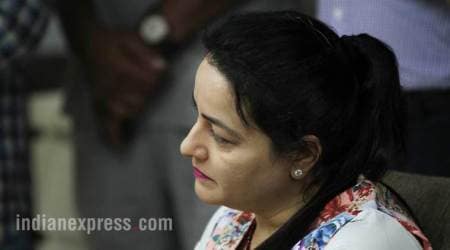 Bombay High Court
Bombay High Court
The Bombay High Court Friday said the amendment to the Noise Pollution (Regulation and Control) Rules, 2000, by way of which the Maharashtra government had done away with existing silence zones, was, “ex-facie unconstitutional”. Granting an interim stay on the August 10 notification of the Centre, through which the amendment came into force, a full bench headed by Justice A S Oka said not seeking suggestions and objections prior to issuing the notification — as mandated under the rules — made the government’s exercise of power “manifestly unreasonable”.
The interim stay granted by the court on the notification means that silence zones as earlier identified — an area of no less than 100 meters around educational institutions, courts and hospitals — would continue to exist and exceeding the prescribed noise limits in these zones would amount to a violation of the Noise Pollution Rules.
The court was of the view that with the Centre’s notification doing away with the silence zones, it would be possible to permit the use of loudspeakers as close as 5 metres or 10 metres from a school, hospital or a court. Citing the view taken by the Supreme Court, the full bench held that the constitutional right to life covered the right to live in peace. If a human being has to live in dignity, he/she cannot be compelled to listen to unwanted sound, the court said, citing the apex court.
With the court’s decision coming during Ganeshotsav festivities in the city, the use of loudspeakers in silence zones may now attract prosecution. The state and the Centre urged the court to stay its order, but the full bench declined it. The court, however, clarified that the government may not proceed with prosecutions for violation of noise pollution rules for the next four weeks.
Under the Centre’s August 10 amendment, the state government was tasked with earmarking silence zones. Prior to the notification, silence zones in the state had been identified on the basis of a Bombay High Court ruling of 2016. The state had informed the court last month that in light of the Centre’s notification, no silence zone now existed in Maharashtra and the government would have to undertake a fresh exercise to identify them.
Intervenor in the case, anti-noise pollution activist Sumaira Abdulali of Awaaz Foundation had contested the notification through lawyer Birendra Saraf. Her plea was placed for hearing before a full bench of Justice Oka, Justice Anoop Mohta and Justice Riyaz Chagla.
The state had contended that staying the notification and bringing back the erstwhile silence zones would lead to law and order problems. However, when the court asked the government pleader to point out instances of law and order problems since the silence zones came into effect, he was unable to do so.
“The government pleader said that there is no material to show that silence zones had led to a law and order situation,” the court noted. It added that after the court’s 2016 ruling, Ganpati and Navratri festivals were celebrated in the city, and the government had not said that it had created law and order situations.
A bunch of petitions pertaining to noise pollution cases was being heard by a bench of Justices Oka and Chagla. The bench had earlier disagreed with the state over disbanding of silence zones. It had said that the government would first have to seek modification of the court’s 2016 order.
However, last week, the state had sought transfer of all noise pollution matters from the bench headed by Justice Oka, alleging that he nursed a “serious bias” against the state machinery. Chief Justice Manjula Chellur transferred the matter to a special bench of Justice Anoop V Mohta and Justice G S Kulkarni, but later withdrew the decision. The petitions were placed before the same bench of Justices Oka and Chagla after the state tendered an unconditional apology.
The petitions challenging the constitutionality of the August 10 notification, however, were placed before a full bench. Granting the interim stay on the notification, the full bench has now listed the case on October 6 for fixing of a final hearing date.

